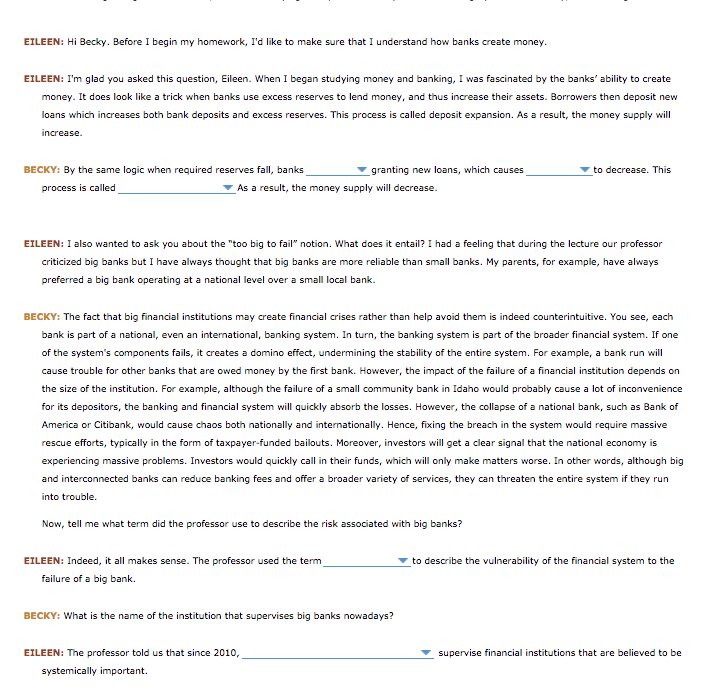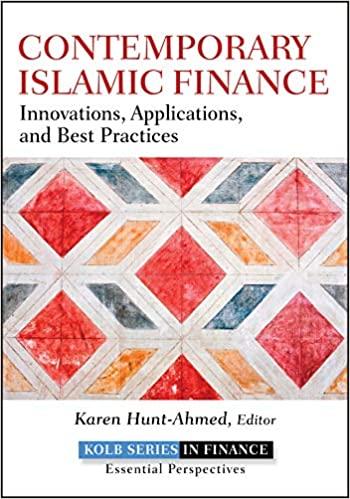
Hi Becky. Before I begin my homework. I'd like to make sure that I understand how banks create money. EILEEN: I'm glad you asked this question. Eileen. When I began studying money and banking, I was fascinated by the banks' ability to create money. It does look like a trick when banks use excess reserves to lend money, and thus increase their assets. Borrowers then deposit new loans which increases both bank deposits and excess reserves. This process is called deposit expansion. As a result, the money supply will increase. BECKY: By the same logic when required reserves fall, banks granting new loans, which causes decrease. This process is called as a result, the money supply will decrease. EILEEN: I also wanted to ask you about the "too big to fail" notion. What does it entail? I had a feeling that during the lecture our professor criticized big banks but I have always thought that big banks are more reliable than small banks. My parents, for example, have always preferred a big bank operating at a national level over a small local bank. BECKY: the fact that big financial institutions may create financial crises rather than help avoid them is indeed counterintuitive. You see, each bank is part of a national, even an international, banking system. in turn, the banking system is part of the broader financial system. If one of the system's components fails, it creates a domino effect, undermining the stability of the entire system. For example, a bank run will cause trouble for other banks that are owed money by the first bank. However, the impact of the failure of a financial institution depends on the size of the institution. For example, although the failure of a small community bank in Idaho would probably cause a lot of inconvenience for its depositors, the banking and financial system will quickly absorb the losses. However, the collapse of a national bank, such as 3ank of America or Citibank, would cause chaos both nationally and internationally. Hence, fixing the breach in the system would require massive rescue efforts, in the form of taxpayer-funded bailouts. Moreover, investors will get a clear signal that the national economy is experiencing massive problems. Investors would quickly call in their funds, which will only make matters worse. In other words, although big and interconnected banks can reduce banking fees and offer a broader variety of services, they can threaten the entire system if they run into trouble. Now, tell me what term did the professor use to describe the risk associated with big banks? EILEEN: Indeed, it all makes sense. The professor used the term describe the vulnerability of the financial system to the failure of a big bank. BECKY: What is the name of the institution that supervises big banks nowadays? EILEEN: the professor told us that since 2C10, supervise financial institutions that are believed to be systemically important







